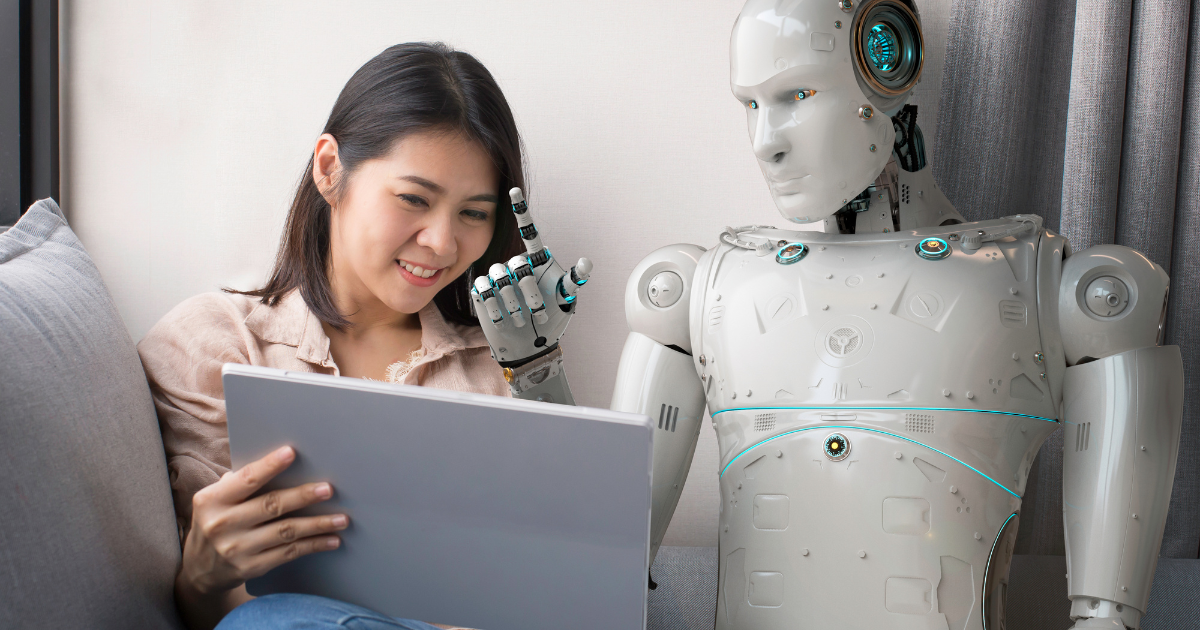In the world of artificial intelligence, where tech giants like OpenAI, Microsoft, and Google are investing billions in extending the capabilities of chatbots, a Palo Alto-based AI firm, Inflection AI, is charting a different path. They have introduced Pi, an AI chatbot designed to be friendly, warm, and emotionally supportive, providing a more personal touch in the world of general-purpose chatbots.
Pi, which stands for Personal Intelligence, possesses all the features you would expect from a typical chatbot like OpenAI’s ChatGPT. However, it sets itself apart by offering more human-like conversations and a high level of emotional intelligence. It delivers shorter responses, akin to conversing with a friend, and actively engages users with follow-up questions, creating a more dynamic and interactive conversation compared to ChatGPT’s often closed-ended responses.
Pi doesn’t stop at engaging conversations; it injects humor into interactions, using filler words like “Hmm” or “Uh-huh” to make interactions feel even more human. Users have noted that Pi’s output is “memeish,” often incorporating emojis and jokes, adding an element of fun to conversations.
Mustafa Suleyman, co-founder of Inflection AI and the leader of Google’s DeepMind team, describes Pi as “very balanced and even-handed on political issues or sensitive topics, but also sometimes it can be funny and silly and creative.” The chatbot, released in May, aims to become a personal assistant for day-to-day tasks, making it unsuitable for long-form responses like essays or emails.
What sets Pi apart is the data it is trained on. Inflection AI claims that Pi’s Large Language Model (LLM) is trained exclusively using publicly available data and proprietary data, emphasizing the goal of generating text like a human. This approach, while taking a bit longer to generate responses compared to ChatGPT, helps address concerns about user data privacy and ethical AI practices.
Inflection AI has garnered substantial support from tech giants, with Microsoft and NVIDIA recently investing in the AI firm’s fundraising round, led by industry luminaries such as Bill Gates and Eric Schmidt. The company has raised approximately $1.5 billion, valuing it at $4 billion.
With NVIDIA’s backing, Inflection AI plans to create one of the world’s largest AI training facilities, powered by around 22,000 H100 GPUs, nearly three times more powerful than what was used to train GPT-4. This increased computing power will be instrumental in building a more powerful foundation model for Pi.
What makes Inflection AI’s approach even more unique is their strategy for fundraising. They aim to involve individuals, rather than traditional venture capitalists, in their journey. As a result, the majority of the stakes remain in the hands of founders Mustafa Suleyman and Reid Hoffman, creating a more personal and community-driven approach to funding.
Despite its billion-dollar valuation, Inflection AI remains a relatively small team of just 35 employees. Their dedication and commitment to improving Pi and developing an even more sophisticated successor have earned them recognition and support from influential figures in the AI community, including NVIDIA CEO Jensen Huang.
As Inflection AI continues to work on the next-generation Pi, they aim to make it smarter, faster, and more personalized, offering users an increasingly immersive and engaging experience. Beyond just creating an AI assistant, Inflection AI is paving the way for a new way of living, where technology truly understands and connects with users on a personal level. In the words of Mustafa Suleyman, “You can’t stop it; you can only hope to contain it,” reflecting their ambition to redefine the future of AI and human-computer interaction.
In conclusion, Inflection AI’s Pi is not just another chatbot; it’s a promising leap towards creating a more human-like and emotionally intelligent AI, changing the way we interact with technology.





Leave a Reply